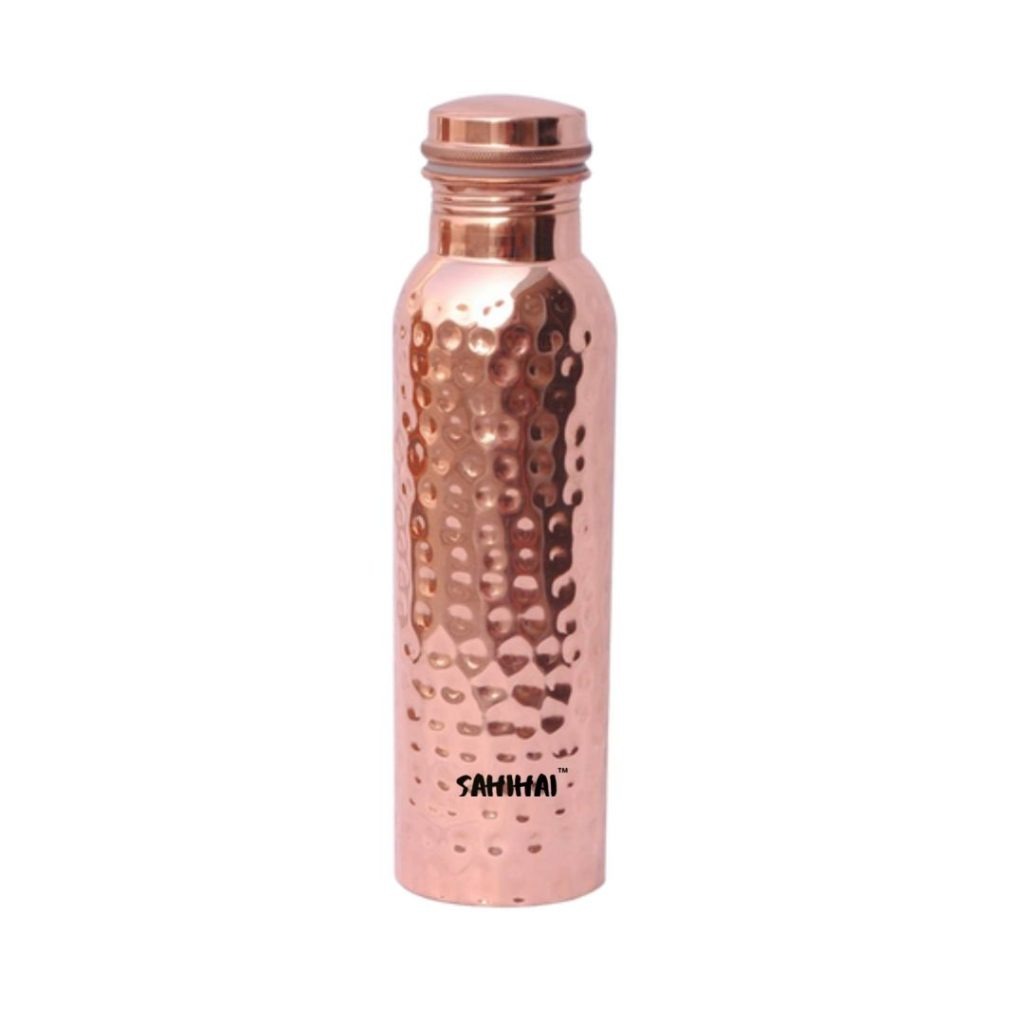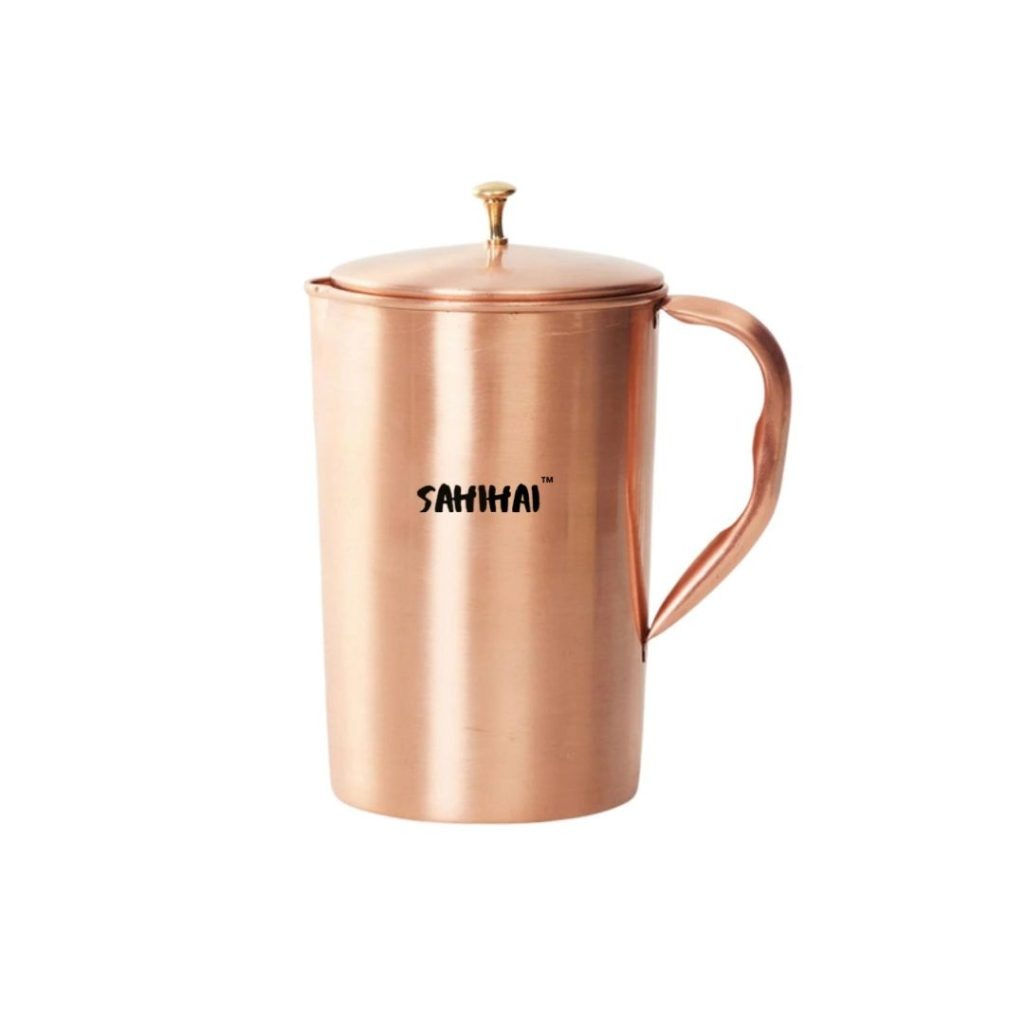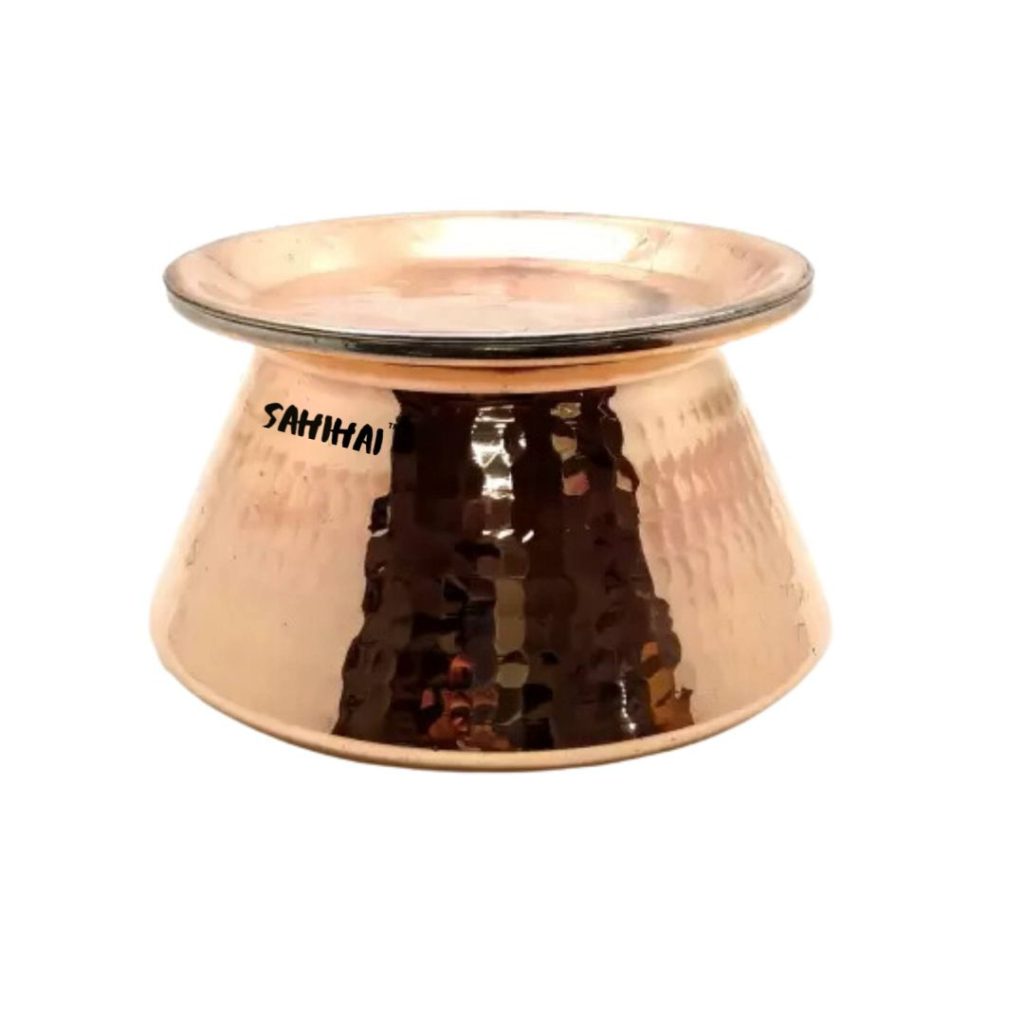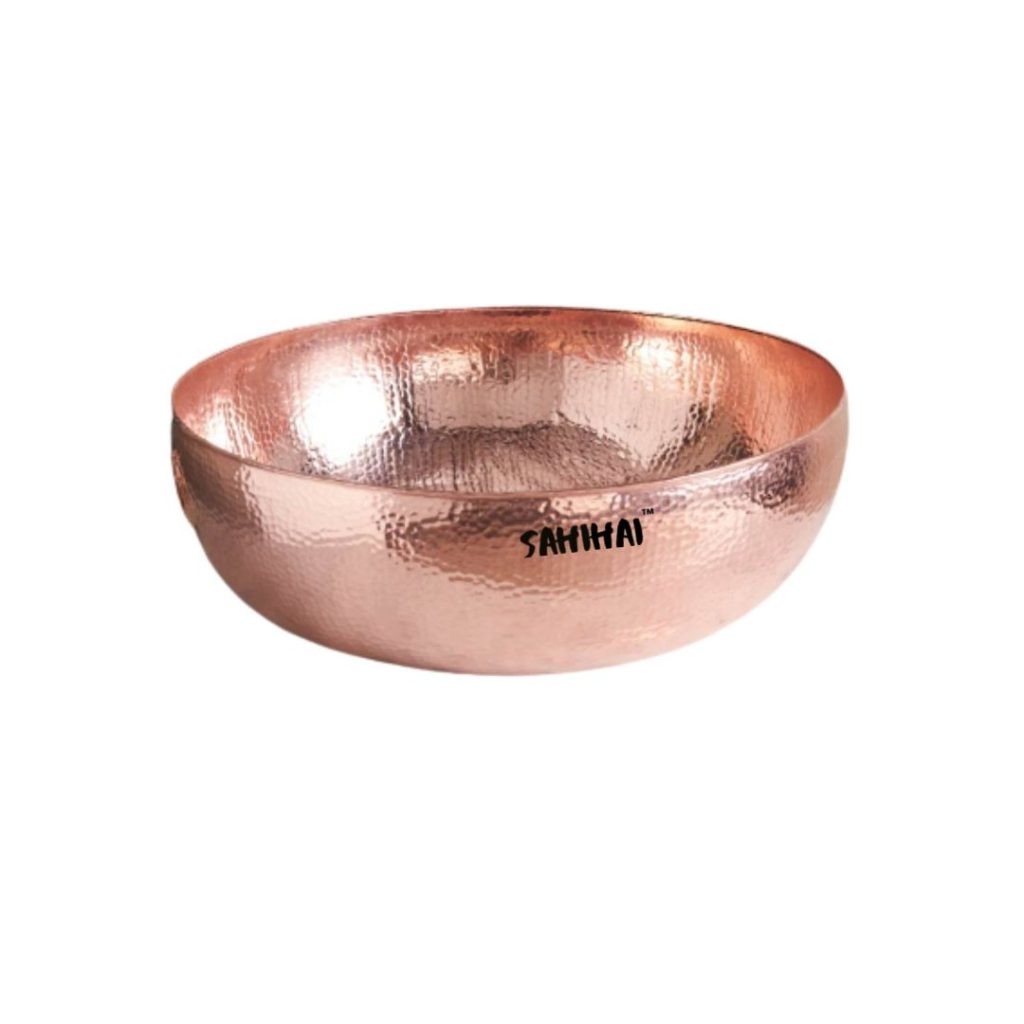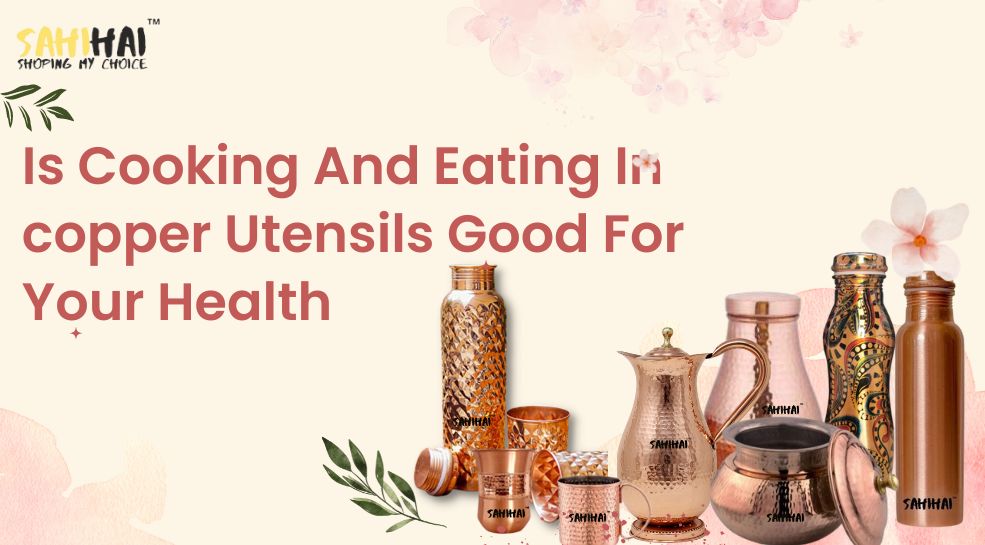
Cooking and eating in copper utensils can have both benefits and considerations for your health. Here are some points to consider:
Benefits:
- Antimicrobial Properties: Copper possesses natural antimicrobial properties that can help inhibit the growth of harmful This can be particularly advantageous in reducing the risk of foodborne illnesses.
- Copper as a Nutrient: Copper is an essential trace mineral required by the human body in small It plays a role in various physiological processes, such as the production of red blood cells, the formation of connective
tissues, and the functioning of the immune system.
- Potential Antioxidant Effects: Copper may act as an antioxidant, helping to neutralize harmful free radicals in the Antioxidants are believed to support overall health and may play a role in preventing certain diseases.
Considerations:
- Copper Toxicity: While copper is essential in trace amounts, excessive intake can be Consuming too much copper can lead to copper toxicity, which may cause symptoms such as nausea, vomiting, stomach pain, and even organ damage. However, it is worth noting that the risk of copper toxicity from regular cooking and eating in copper utensils is generally low, as the amount of copper leached into the food is usually minimal.
- Acidic Foods: Copper can react with acidic foods, resulting in the leaching of copper into the food. Acidic ingredients like tomatoes, citrus fruits, and vinegar can cause this Therefore, it is advisable to avoid prolonged cooking or storing acidic foods in copper utensils to prevent excessive copper absorption.
- Allergies and Sensitivities: Some individuals may be allergic or sensitive to If you have a known copper allergy or sensitivity, it is best to avoid cooking or consuming food prepared in copper utensils.
- Quality and Maintenance: The quality of the copper utensils, including the presence of a protective lining or sealant, plays a crucial role in minimizing copper Ensure that the copper utensils you use are of good quality and have a food-grade lining or sealant on the inside. Additionally, proper cleaning and maintenance are essential to
prevent the buildup of tarnish or corrosion on the copper surface.
It’s important to note that the Food and Drug Administration (FDA) in the United States has established limits on the
permissible amounts of copper that can leach into food from cookware. Manufacturers of copper utensils should comply with these regulations to ensure consumer safety.
Ultimately, if you choose to cook and eat in copper utensils, it is advisable to do so in moderation and maintain a balanced and varied diet. If you have specific health concerns or conditions, it is recommended to consult with a healthcare
professional for personalized advice.

